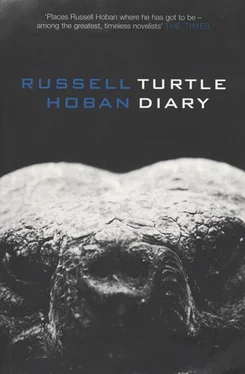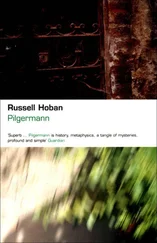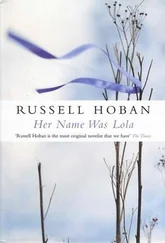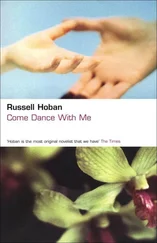Russell Hoban - Turtle Diary
Здесь есть возможность читать онлайн «Russell Hoban - Turtle Diary» весь текст электронной книги совершенно бесплатно (целиком полную версию без сокращений). В некоторых случаях можно слушать аудио, скачать через торрент в формате fb2 и присутствует краткое содержание. Год выпуска: 2000, Издательство: Bloomsbury Publishing PLC, Жанр: Современная проза, на английском языке. Описание произведения, (предисловие) а так же отзывы посетителей доступны на портале библиотеки ЛибКат.
- Название:Turtle Diary
- Автор:
- Издательство:Bloomsbury Publishing PLC
- Жанр:
- Год:2000
- ISBN:нет данных
- Рейтинг книги:3 / 5. Голосов: 1
-
Избранное:Добавить в избранное
- Отзывы:
-
Ваша оценка:
- 60
- 1
- 2
- 3
- 4
- 5
Turtle Diary: краткое содержание, описание и аннотация
Предлагаем к чтению аннотацию, описание, краткое содержание или предисловие (зависит от того, что написал сам автор книги «Turtle Diary»). Если вы не нашли необходимую информацию о книге — напишите в комментариях, мы постараемся отыскать её.
Turtle Diary — читать онлайн бесплатно полную книгу (весь текст) целиком
Ниже представлен текст книги, разбитый по страницам. Система сохранения места последней прочитанной страницы, позволяет с удобством читать онлайн бесплатно книгу «Turtle Diary», без необходимости каждый раз заново искать на чём Вы остановились. Поставьте закладку, и сможете в любой момент перейти на страницу, на которой закончили чтение.
Интервал:
Закладка:
‘Actually they have tiny wireless transmitters in them,’ he said with an evil smile. ‘So I get to know everything that goes on in your flat.’
‘I’m afraid it must be terribly dull listening for you,’ I said. ‘You must excuse me now.’
‘Till soon,’ he said as I closed the door.
I quickly took the snails out of the tank, put them in a peanut-butter jar full of water and left the jar outside his door.
What could have worked him up to that awful pitch? He’d seen me often enough without getting all excited. But until he fed Madame Beetle he hadn’t seen my flat which perhaps looked as if a good deal of work was being done and a comfortable living being made. Maybe he was tired of young men and old ladies and wanted to settle down. Dreadful of me to think it but I thought it.
‘There’s a jar of snails outside your neighbour’s door,’ said George when he arrived.
‘I know,’ I said. ‘They were in Madame Beetle’s tank for a while but I didn’t like the way they looked at me.’
‘There’ll be more,’ he said, and showed me little patches of eggs on the sides of the tank.
‘That’s all right,’ I said. ‘I’ll get them before they get me.’
He walked about the flat looking at things. I’d only seen him in shirtsleeves before. He was wearing an old tweed jacket with leather patches on the elbows, no tie.
‘You look different tonight,’ he said.
‘How?’ I said.
‘Jolly. Full of smiles.’
‘That’s how I feel,’ I said. We both drank gin neat, it was bright and velvety. We smiled at each other over our glasses, time seemed full and easy, available in unlimited amounts. George seemed to carry a clear space about with him that made all things plain and simple where he was. The room lost its tired complexity, became comradely and cheerful. Without going to the window I knew that the evening view of the lamplit square would be as round and juicy as a ripe plum.
We went to the Bistingo on the King’s Road and had steak and drank red wine. The evening seemed very bright. We walked up the Embankment to Westminster afterwards, then over the bridge to the South Bank. We walked about on the different levels up and down the steps and by the river. The plaza by the Royal Festival Hall was like a gigantic stage-set, the night was full of quiet excitement, the river was shining, the music-boats had gemmed windows, the trains across the Hungerford Bridge were freighted with promise.
We had coffee at the National Film Theatre clubroom, then walked back to my place slowly and by devious routes. At two o’clock in the morning we came past the Albert Bridge. Five or six taxis always park there for the night by a little hut that must be a dispatcher’s office. In the first taxi in the rank the driver was sitting in the back seat in the dark playing a muted trumpet. Dixieland. The music floated quietly through the open window, small and lively.
‘What is it?’ I said.
‘Muskrat Ramble ,’ said George.
At home we lay in bed smoking, watched the shapes of light on the ceiling, pale abstractions from the street lamps.
Before I fell asleep I saw green water, the white shark-glimmer. I looked at my watch. Half past three. I hope William’s all right, I thought.
49 William G
Sundays come round so quickly, sometimes there scarcely seems a day between them let alone a week. My mother had at least had the Methodist Church to go to and to stop going to, either way it was a positive action. I had nothing except a strong feeling of dread. Perhaps my mother had had that as well. I remembered it from earliest childhood, the awful Sunday daylight through the coloured glass of the front door, the quiet outside.
Sunday is the day when there you are with the people you live with and that’s it. Or there you are alone. There’d been Sundays when I’d methodically picked up girls at the Victoria & Albert or the British Museum, Sundays drove strangers into each other’s arms. But I simply hadn’t that much enterprise now. I thought of Port Liberty but didn’t fancy the trip to Greenwich. I decided to have a lazy day, maybe Sunday would just take care of itself and not bother me.
Sandor invariably went out on Sundays looking just like the rest of the week except no tie. He even carried his briefcase and I suppose he went somewhere where everybody spoke five languages and read many newspapers and argued about politics all day.
Miss Neap either solved or compounded the weekend problem at least once a month by visiting her mother in Leeds. At other times she maintained a full Sunday cultural schedule and working as she did at a ticket agency was never without something to do. She was an avid museum-goer in the afternoons and favoured music in the evenings, overdressing smartly and appropriately for each part of the day.
Mrs Inchcliff was out scavenging as usual. I believe Sunday was her building-site day, she tended to bring home new-looking timber and sometimes clean bricks, all to be hoarded in the lumber-room, perhaps against the advent of a new friend handy with tools.
So I had the place to myself, and from my window looked out across the common where the trains clattered by and the shining rails maintained their perspective vanishing towards Putney. On the common, people smiled and strolled on the paths and on the grass stepping round and over the dogshit while other people smiled and strolled as their dogs shitted on the paths and on the grass. The paddling pool was full of children. The sandbox, the roundabout, the swings, the rocking-horses and mums and dads were active on the playground. The washers of cars on our street were at it looking at the same time virtuous and given over to sensuality. The Greyhound Widow passed, her phantom husband dragging a silent foot. The trees had not so many leaves now, one day soon a heavy rain would leave them bare and winter would be here. ‘Ah,’ I said aloud standing at the window.
The Sunday papers were too many for me, they’d not get read today, I wasn’t up to any intellectual activity. The turtles would be swimming, swimming and it occurred to me for the first time that for me they’d always be swimming. I’d never know whether they’d got to where they were going. At first I’d been obsessed with setting them free. Then it had become a heavy task I was committed to. Then we did it and afterwards it seemed a blank and empty thing. Now it felt a good thing again. The turtles were swimming to where they wanted to be. But that was their swimming, they couldn’t do mine.
What was my swimming then? To go on working at the bookshop or somewhere else? To live alone or with someone? To stop smoking or not? To go on getting up in the morning or perhaps not? If I walked round the corner K257 would say ‘I believe’. Believe what? I picked up the stone from Antibes. Look, Dad, here’s a good one. Gone, gone, everything gone. Don’t cry, Willy. I didn’t. On the other hand, do cry, why not. I did.
I went downstairs. Miss Neap’s News of the World was still lying in the hall by the front door, perhaps she’d decided to sleep in and let Sunday look after itself for once. I went over to the paddling pool. The children and the noise suddenly moved into close-up focus. A little boy punched a smaller one and seemed satisfied. Two little girls pranced splashing by, all flashing legs and flying hair. I dropped the stone from Antibes into the shallow water. It lay on the bottom looking up at me until the water glazed with light and I couldn’t see the stone any more.
In the sunlight I went for a little walk down the New King’s Road towards the Putney Bridge. They’d been resurfacing the road. Here and there were little huddles of air-compressors, asphalt-spreaders and rollers, red wooden tripods, yellow blinker lamps drawn up and bivouacked until Monday. At a zebra-crossing all the Belisha beacons were bagged in black plastic. I felt that one was never really alone while there was someone to bag the Belisha beacons in black plastic.
Читать дальшеИнтервал:
Закладка:
Похожие книги на «Turtle Diary»
Представляем Вашему вниманию похожие книги на «Turtle Diary» списком для выбора. Мы отобрали схожую по названию и смыслу литературу в надежде предоставить читателям больше вариантов отыскать новые, интересные, ещё непрочитанные произведения.
Обсуждение, отзывы о книге «Turtle Diary» и просто собственные мнения читателей. Оставьте ваши комментарии, напишите, что Вы думаете о произведении, его смысле или главных героях. Укажите что конкретно понравилось, а что нет, и почему Вы так считаете.












